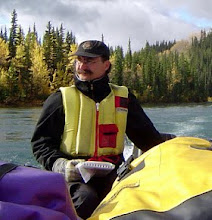 |
| Railway crossing on the highway to Taranaki |
Public signs and personal conversations in New Zealand are peppered with colloquilisms, adding colour, sharpening definition and confusing visitors. One of the most common is the use of the word “as” to denote a decapitated superlative. “It's hot as.” Fill in the declarative of your choice, another evocation of the modesty and accommodation of the Kiwi for their neighbour. Many phrases also reflect the gently self-deprecating nature of the New Zealander. This was especially apparent two years ago when I watched the sub-tropical Auckland-based television sportscasters enthusiastically reporting on the Vancouver Olympics. They gleefully described and reported on winter sports that neither they nor the vast majority of their viewers had ever heard of, never mind seen. Colourfully decked out in Olympic toques and the red mitts they randomly applied their familiar cricket and field hockey terminology to different events, always humoursly acknowledging that they didn't really have a clue what was going on. The important point was that New Zealand was there.
In the same line I was browsing through a real estate brochure for Plimmerton, an ocean front bedroom community of the capital, Wellington. Amongst the pages of small photos and descriptions the agency highlighted some of the premuim properties with half page ads. One hilltop estate overlooking the beaches was described “As rare as rocking horse droppings.” I interpreted this to mean “wooden shit as” and straight 'way reached for the phone.
And not all of this is in English. At one of the history conference sessions I attended earlier in November, one young Maori academic spoke of the social and cultural difficulties of researching and writing a thesis based upon her own community. The research had gone well enough but the defence and presentation of the final paper had put her in the position of being an authority, an awkward situation as she represented her work to the Elders who had guided and sustained the work. She rattled off a Maori phrase, translated as “Kumera (a kind of potatoe) doesn't speak of its own sweetness”, recognizing the importance of community relationships over the personal thus reframing her work as contribution rather than achievement.
Finally, the railway crossing sign had me trying to remember the biblical story of Jonah and the whale. Was he driving the whale? Was he in the whale king with 15,000 followers? I was stumped, not actually certain that the sign had anything to do with trains at all. Maybe it was an Old Testament “Jesus saves?” Later I asked Stacey, my knowledgeable New Zealand friend, for details. He reported that Jonah Lomu, a left winger with the All Blacks, 115 kg and 6' tall, was the archetype of rugby players. Playing in the 1995 test match with England Jonah was running for a try. Mike Catt, a defending English player attempting a tackle, was simply swallowed by Jonah's stride and size and bulldozed out of the way. So the sign was a wet dream for Kiwi rugby coaches.
Now I'm sorted as.



e.jpg)


No comments:
Post a Comment